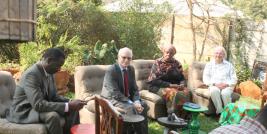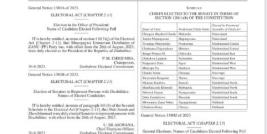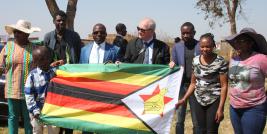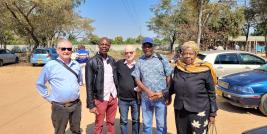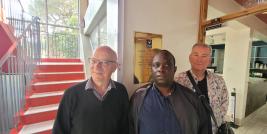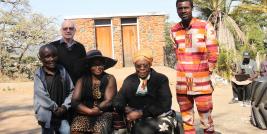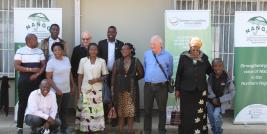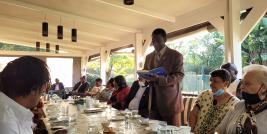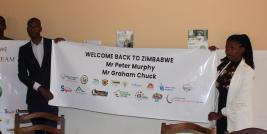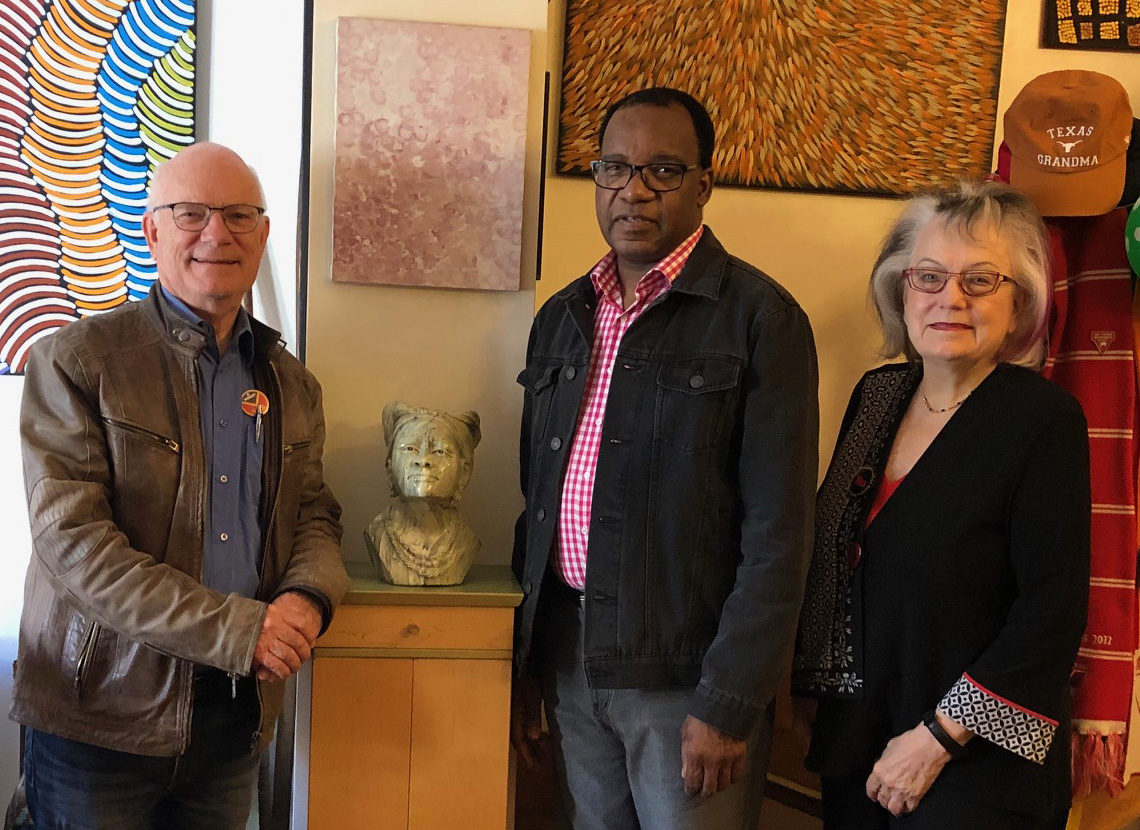
Following a visit by Senator Mrs Sekai Holland of the Zimbabwe Peacebuilding Initiative (ZimPI) to the Zimbabwe Embassy in Canberra in early October 2023, the President and Secretary of the Zimbabwe Information Centre, Dr Meredith Burgmann and Mr Peter Murphy, met with the Ambassador in Sydney on October 11-13, 2023. Our purpose was to introduce the ZIC more extensively to the Ambassador, discuss a number of ZimPI projects which ZIC could support, and explain our campaign to end Australia’s ‘smart sanctions’ on certain individuals in Zimbabwe.
The Ambassador was very appreciative of the campaign to end the sanctions, and linked the sanctions to the very adverse Travel Advisory for Zimbabwe on the Dept of Foreign Affairs and Trade website. This is very damaging to the tourism industry, yet visitors to Zimbabwe are very safe.
Dr Burgmann related to the Ambassador the origins of ZIC in the Australian anti-apartheid movement of the early 1970s, the involvement of Senator Holland in the movement at that time, and her work in Australia in the Zimbabwe independence struggle. Dr Burgmann explained Senator Holland’s request in 1999 that our network create the ZIC, with its broad purposes of supporting freedom, democracy and genuine development in Zimbabwe and the friendship between the peoples of the two countries.
While this involved close support for MDC from 1999-2013, it enabled ZIC to evolve its work as the political situation changed in Zimbabwe, especially after the 2017 deposing of Robert Mugabe from the presidency of the country and his later death.
ZIC enabled a meeting between the Ambassador and the Bill Crews Foundation to explore ways to mobilise finance and skills for education and health projects in Zimbabwe, and also examined possible exchanges of people between universities and health agencies in the two countries.
ZIC was also able to provide some background information to the Ambassador on the situation of Australia’s First Nations and the referendum on constitutional recognition through a Voice that was climaxing during that week.
The Ambassador provided more information to ZIC on the conduct and outcome of the August 23-24 national elections in Zimbabwe, and his hopes for visits to Australia by Zimbabwean cultural performers, to build direct people-to-people relations. He noted the lack of African Studies centres at Australian universities at present.
He also reported that agriculture had been turned around in Zimbabwe, starting with a household food security program, which has now enabled food exports for two consecutive seasons. Ongoing investments in dams and irrigation in all provinces is expected to further enhance agricultural production, and provide buffers through drought periods. He is keen for further cooperation on dry-land agricultural research.
He expressed serious concern at English language tests required of Zimbabwean graduates before they can obtain employment in Australia. He noted improved access for Zimbabweans to Australia’s university scholarship program, and on training in mining skills in Western Australia. More broadly, both countries are in dialogue about the critical minerals developments associated with the transition to renewable energy systems.
Based on this dialogue, both ZIC and the Zimbabwe Embassy are keen to develop positive ideas for project development and people-to-people links.

